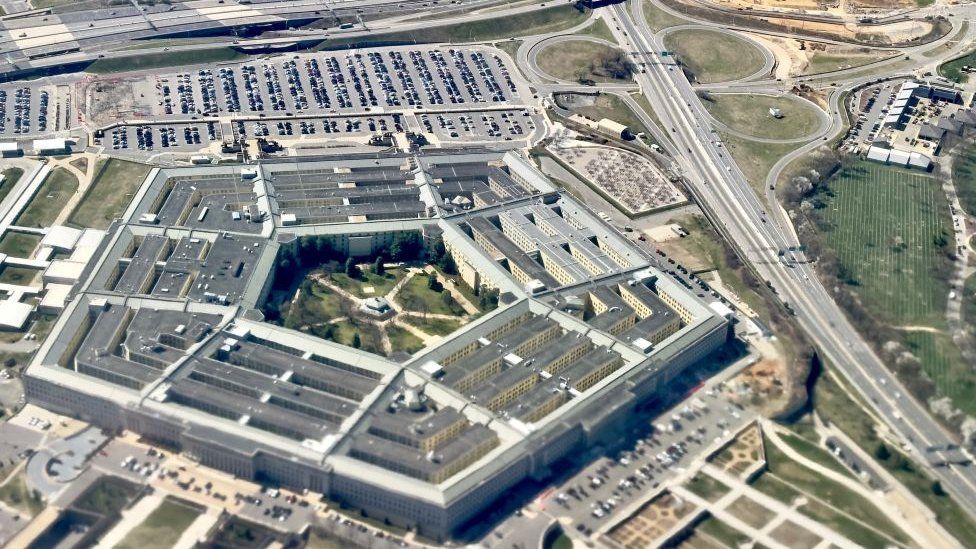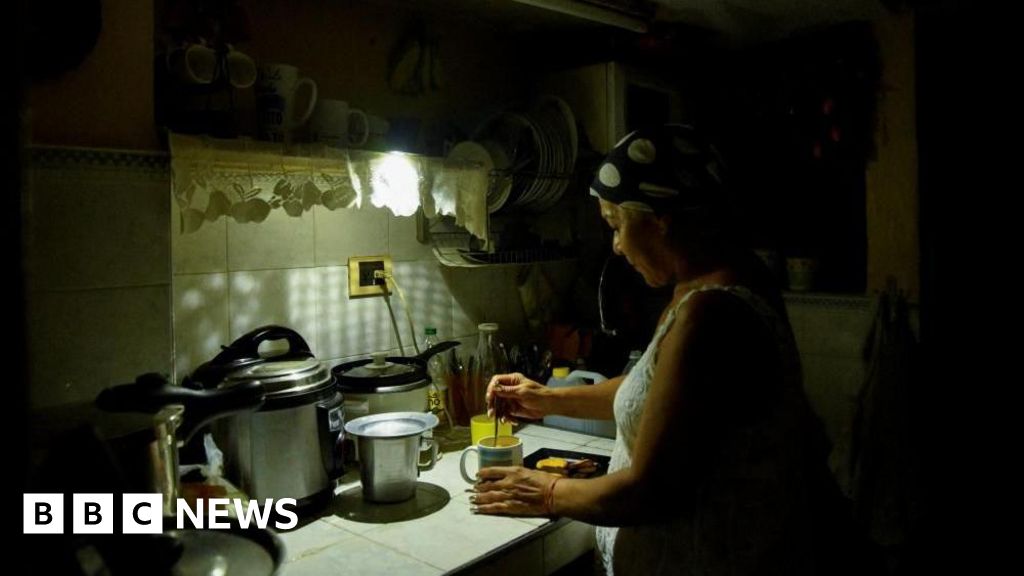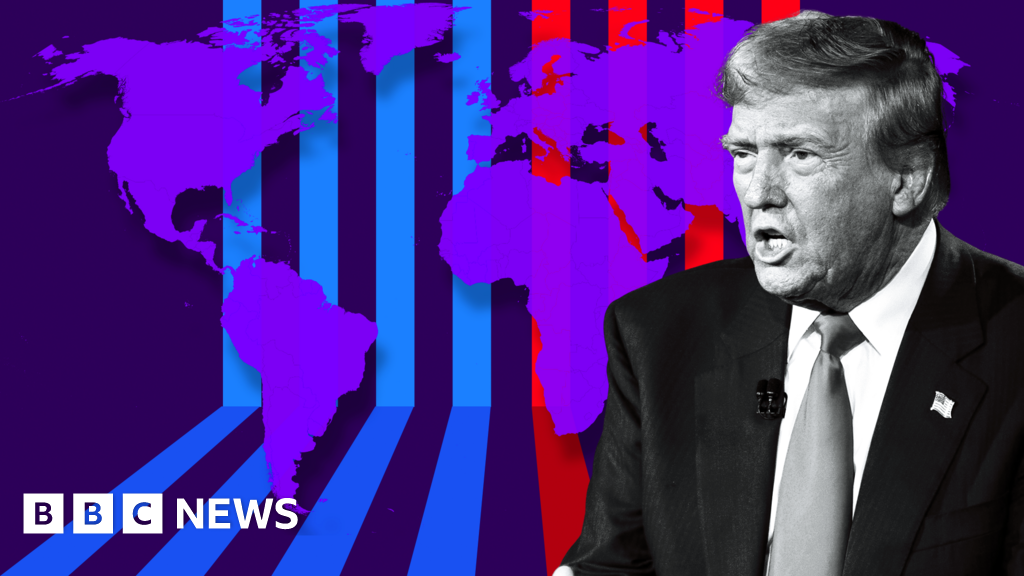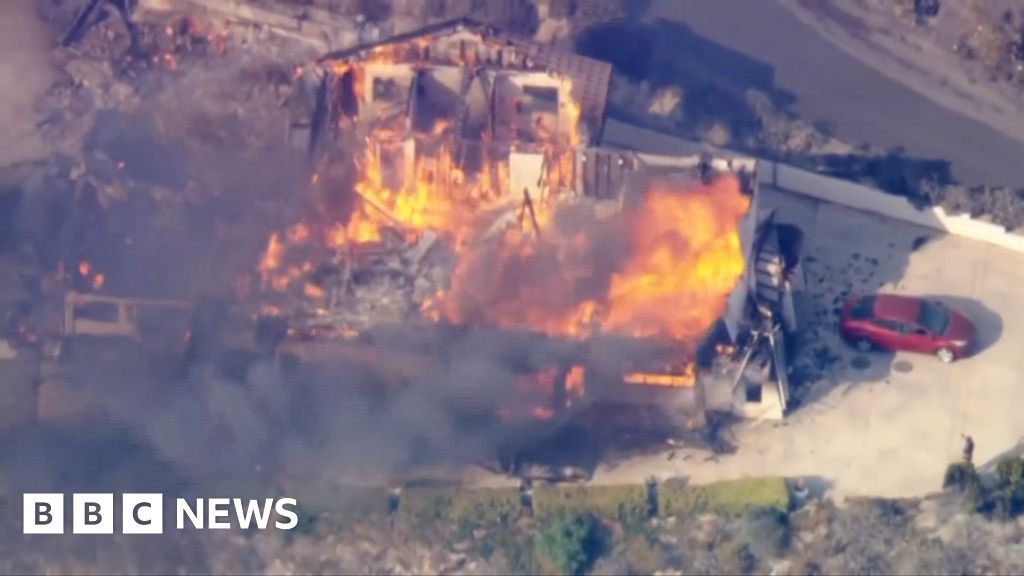ARTICLE AD BOX
 Image source, Getty Images
Image source, Getty Images
Pentagon officials have been quoted as saying the leaked documents are real
By Olga Robinson, Shayan Sardarizadeh & Jake Horton
BBC News
Dozens of classified US documents which were leaked and circulated online have started to disappear, or at least become much more difficult to find. But where did they come from?
We've pieced together what we know about how they first appeared, where they spread, and who's been discussing them.
Documents posted
The first screenshots of the documents we've been able to verify were posted on 1 March. More appeared a few days later.
They appeared on Discord - a social media platform popular with gamers - and were shared on several discussion channels.
These channels aren't about politics or military intelligence, they're for players of the computer game Minecraft and another for fans of a Filipino YouTube celebrity.
In one of the channels, after a brief argument about Minecraft and the war in Ukraine, a user says "here, have some leaked documents" and posts several screenshots.
One of those on the chat group claims to have taken the images from another channel on Discord which has since been deleted, making it impossible to verify.
The investigative website Bellingcat has seen evidence that some documents could have been posted in January or even earlier.
These documents remained on Discord largely undetected, before spreading to other platforms in early April and eventually being picked up by US officials and the mainstream press.
On 5 April, screenshots of the documents appeared on the message board 4chan, one of the biggest and most controversial hubs of internet subculture.
They were shared on one of 4chan's most notorious boards known as /pol/ - standing for politically incorrect - by anonymous users during an argument about the exact number of Ukrainian and Russian casualties there had been in the conflict.
Just a few hours later, these documents began appearing on pro-Kremlin Telegram channels and were also picked up by prominent military bloggers.
Image source, Telegram/TGStat
Image caption,The documents were posted alongside comments like this on Telegram
One image - widely circulated by Russian channels - was edited to reduce the number of Russian troops killed and inflate the Ukrainian losses.
By 7 April, the documents were also circulating on some of the major social media platforms, such as Twitter and Reddit.
Russian response
Initially, pro-Kremlin Telegram channels who shared the screenshots did not dwell much on the authenticity of the documents, focusing largely on their content.
But soon several prominent channels and media outlets started to lean towards portraying the documents as at least partly fake.
An expert quoted by ultranationalist news website Regnum suggested the documents may be a deliberate leak aimed at providing a smokescreen for the coming Ukrainian counter-offensive.
On state TV, Yuri Podolyaka, a prominent war commentator, said this was "planted information" intended to mislead Russia about the counter-offensive.
Olga Skabeyeva, host of state Rossiya 1 TV's 60 Minutes talk show said the West had been doing "all it can to create the image of a weak Ukraine whose shells are running out and which has nothing left at all".
The leaked documents were discussed at length on Rossiya 1's talk show 60 Minutes
Questions about the authenticity of the documents have been raised in Ukraine too, with some commentators accusing Russia of planting fake documents ahead of the Ukrainian counter-offensive.
Disappearing documents
Multiple screenshots of the documents - often of poor quality - are still circulating on Twitter, Telegram and Reddit.
But the originals are much harder to find. A lot of the original copies have now disappeared from the chats where they first emerged.
Others who shared the screenshots on Discord, Telegram and Twitter have either wiped out their feeds or deleted their social media profiles altogether.
And there's a great deal of paranoia too.
One user who has previously shared screenshots of the documents on Discord told fellow users they'd been trying to get rid of all the copies they had on their phone.
Another was quick to respond to a plea to share more documents on the forum with: "Nice try FBI".
The disappearance of the original copies prompted speculation that the Pentagon was trying to get platforms like Twitter to remove posts containing the documents.
Twitter's owner Elon Musk responded by saying he would not be directing his staff to actively find and remove the documents.
This Twitter post cannot be displayed in your browser. Please enable Javascript or try a different browser.View original tweet on Twitter
The BBC is not responsible for the content of external sites.
"Yeah, you can totally delete things from the Internet - that works perfectly and doesn't draw attention to whatever you were trying to hide at all," he tweeted.
Additional reporting by Adam Robinson.

 1 year ago
25
1 year ago
25








 English (US)
English (US)